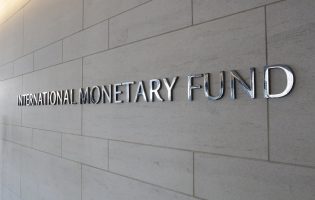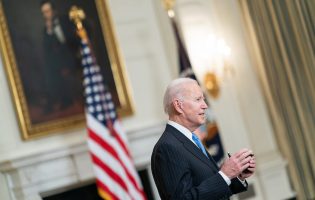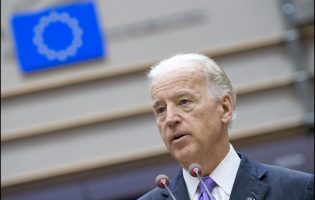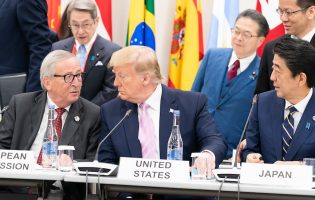Episode 43: Living the American-German Relationship—A Conversation with Martin Richenhagen
On this episode of The Zeitgeist, our guest is Prof. Dr. Martin Richenhagen, Chairman of the AGI Board of Trustees and former CEO of the American agricultural machinery manufacturer AGCO …

Peter Rashish Interviewed on Artificial Intelligence, China, and Trade Policy
Peter Rashish, Director of the AGI Geoeconomics Program, spoke with the Italian news site Formiche.net about artificial intelligence, China, and trade policy. His comments were originally published in Italian, which …
Episode 41: Trade Talk with Soumaya Keynes—Biden’s Trade Policy, the Transatlantic Relationship, and the Next Chapter
On this episode of The Zeitgeist, AGI’s Jeff Rathke and Peter Rashish speak with Soumaya Keynes, trade and globalization editor at The Economist and co-host of the Trade Talks podcast, …

As the U.S. Economy Gains Steam, the Trade Deficit Debate Could Return
During the Biden administration’s first 100 days, a milestone that will be reached on May 1, trade policy has so far not played the central role it did under the …

Transatlantic Economic Relations under the Biden Administration
Be careful what you wish for? In this commentary for the European Policy Centre in Brussels, Geoeconomics Program Director Peter Rashish argues that a U.S.-EU approach to China that leaves …
Recent Authors
AGI provides knowledge, insights, and networks as tools to solve the challenges ahead.
Support Our Work
EU Answers U.S. Call to Cooperate on China, Now Comes the Hard Part
The recent tit-for-tat sanctions between the EU and China over human rights abuses in Xinjiang feel like a turning point in EU-China relations. Beijing’s fierce retaliation that targeted EU institutions, …

USTR’s Promising Start for Transatlantic Economic Relations
On Monday, the Biden administration released the 2021 Trade Policy Agenda and 2020 Annual Report, an annual event that the 1974 U.S. trade act requires take place by March 1. …

The EU’s Trade Policy Review: Conflicting Signals for Transatlantic Strategy?
The European Commission released its long-awaited Trade Policy Review (TPR) this week, placing it under the banner of “An Open, Sustainable and Assertive Trade Policy.” Perhaps because of the manifold …

Peter Rashish Calls for Enhanced U.S.-EU-Japan Trilateral Process in Foreign Policy Article
In his recently published Foreign Policy article, “Biden Should Finish Trump’s One Good Trade Idea,” AGI Senior Fellow and Geoeconomics Program Director Peter Rashish advises the Biden administration to revive …

Race to the East? China Revives the 17+1 Summit
Last month, Beijing suddenly announced a plan to host a digital 17+1 one summit in February, bringing its relationship with Central and Eastern European countries (CEEC or CEE) back into …

From IT Security Law 2.0 to Open RAN: Germany’s 5G Strategy Evolves beyond the Huawei Debate
On January 27, the German federal government presented the draft IT Security Act 2.0 (IT-Sicherheitsgesezt 2.0) to the German Bundestag, pushing ahead a reform that is seen by some as …





